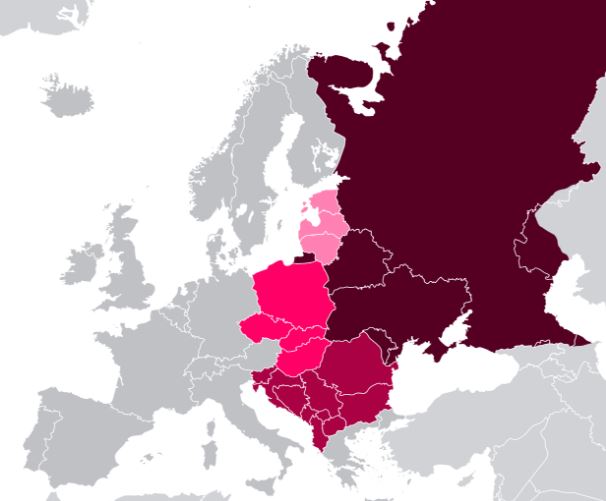The tech industry is expanding and evolving at an incredible rate. As the world is becoming increasingly more reliant on technology, it is clear that demand for developers will continue to increase over the next decade. This is great for those who have chosen software development as a career path, but presents challenges for the companies which need IT staff.
Coding skills are in high demand and skilled developers are hard to find. Basic economics and the law of supply and demand teaches us that this situation leads to a high price of services – high wages for good coders. While this is awesome for developers, employers are finding it increasingly difficult to build software with an in-house team.
This is why many companies turn to offshoring as a solution for the high cost of labor and scarcity of talented coders. Using remote teams in countries with lower labor costs and growing pools of IT professionals, they are able to stay competitive and build quality software.
Nearshoring and Rise of Eastern Europe
Nearshoring is the practice of outsourcing or offshoring work (usually business processes or software development) to a nearby country, because of the cheaper cost at which the work can be carried out.

Europe gives us a great example of what is referred to as nearshoring. The continent has two main regions – Western and Eastern – which differ vastly in their economic development. The average wages in these two regions are strikingly different which creates the perfect conditions for nearshoring.
Eastern Europe consists mostly of countries which were once part of the Soviet Union and while these countries all took the path of democracy, in lieu of communism, their economies have never been comparable to those of Western European states.
However, educational programs in some of these countries, place a strong emphasis on IT and produce highly skilled software developers. While some of these qualified individuals choose to leave the country to settle and work in Western Europe, most stay in their home country and find employment opportunities in the growing offshoring sector.
Eastern Europe’s popularity as an offshoring destination is growing, as common outsourcing destinations like India and the Philippines are becoming increasingly more expensive. While cost of labor in India is still lower than even the cheapest Eastern European country, the cultural differences and time zone differences make nearshoring the preferred choice for Europeans.
Top Nearshoring Destinations in Europe
Labor costs are the main determinant when it comes to picking a good nearshoring destination. The lower the cost of labor in a county, the better candidate it is for nearshore software development. This is of course given that the country actually boasts a good talent pool, which most East European countries do.
So where can you find the cheapest labor costs in Europe? According to various data sources, which Wikipedia have used to report on average wages in EU, you can conclude that Bulgaria has the lowest average median salary. This makes the country a top choice for cheap nearshored software development.
In fact, Bulgaria was the winner of “Offshoring Destination of the Year”, in 2015 European Outsourcing Association Awards (EOAA). The outsourcing industry in the country accounts for almost 4% of GDP and has seen double-digit year-over-year growth in recent years.
Aside from Bulgaria, other popular nearshoring destinations in Europe include Poland, Romania, and Latvia.
How Cheap is Nearshore Software Development?
You can save considerable financial resources if you choose to nearshore your software development in Europe. Depending on your country of residence and your choice of a nearshoring destination, financial benefits can range from average to high.
For instance, if your company is headquartered in Germany and your choice of nearshoring destination is Bulgaria, you will save a considerable amount on software development as the average salary in Germany is around 2200 EUR and only 380 EUR in Bulgaria. Differences in the IT sector could be less striking, but still substantial.
The difference in average salaries between Germany and Bulgaria is more than five-fold. If we were to compare with Denmark, which is among the richest countries in Europe, that difference would be eight-fold.
Countries with higher wages in the IT sector can benefit most from nearshoring. An absolute figure, representing how cheap nearshore software development is, can only be acquired with quotes from IT offshoring companies, which we encourage you to obtain, but also keep in mind the cost saving potential determined by the relative cost of labor.
Nearshoring with RemoTEK
RemoTEK is a company which provides nearshored software development for the European market. Using our long-term experience, we help European companies by providing advanced solutions for nearshoring and building remote teams in Bulgaria – a leading offshoring destination in Europe and worldwide.
You can inquire about nearshoring for your software project by visiting our home page.
